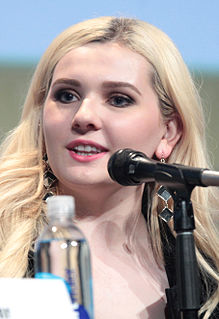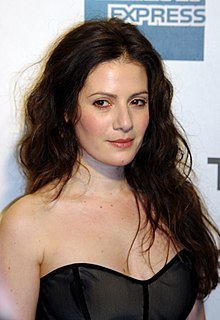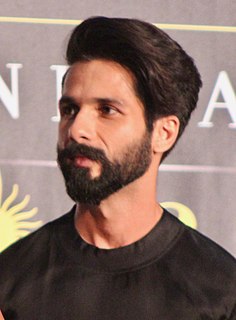A Quote by Travis Knight
When you allow an animator to focus on a portion of the film and really understand the arc of the scene, what's happening with the characters, they can make choices all along the way that reinforce the main points of the scene. They really get to know what's happening.
Related Quotes
As a writer, you know what the purpose of the scene is. It really has nothing to do with the actor so you have to really get out of that space because for actors it's a micro-focus and then you figure out your arc through what the writers have given you to say. But that arc is just one little piece of the huge arc of the whole film. It took a while to get out of that.
It makes it very easy. I have a beginning, middle, and end, and I don't film for long - about 20 hours usually for a two-hour film - so it's easily watchable in a week for me and the editor. Once I know who the characters are, I only film those characters, unless somebody else forces their way into the film by a scene happening to them or we meet them by chance.
It's never really fun to have to cry in a scene, or anything like that. I just try to put myself in the characters position, and that helps. It's never really fun, but at the same time, if you're having a really bad day, it's a great way to get out all of your frustration by doing a really angry or sad scene. That's always a good release.
I really like the Chris-R scene and of course the "you are tearing me apart Lisa" scene. The reason I love the Chris-R scene is because we worked really hard to finish it. It's not just that though, it brings people together. Everyone is one the roof together by the end of the scene. You see the perspectives of the different characters. I feel like with all the connections in this scene that the room connects the entire world
Whether it's one scene or 15 scenes in a film, whether it's the lead or a cameo part, if I don't find it interesting, I tend not to do it. You never really know what it is. It could be a one-scene part. I remember I read the one scene in Crash and was asked to do it. I was like, "Absolutely!" There's no formula for how something has to be. I always try to keep it that way.
What makes 'Hoop Dreams' such a powerful film, is that it carries a message that maybe we can do something about our problems in America, reflected in the resiliency and strength of those families that we portrayed. The film was where we really saw the characters that we care about, interwoven with a analysis that is trying to help the audience understand what is happening in these people's lives. And in what is happening, there is an understanding of the larger power relationships in the world.
I really feel that actors should really know who they are as characters; they should really study their lines; they should be prepared; but once they come to set, for me the most exciting way to shoot a scene is to really find it, really kind of grind your way through it, until you feel like you have something that you can put together.
I thought I was okay in my first film, and then I was really, really bad in some films. I really cringe when I see some of my scenes. There's a scene in one film where a dog is biting me; the expressions I have made should be qualified as the most over-acted scene in the history of the cinema. The dog's expressions were more real than mine.




































